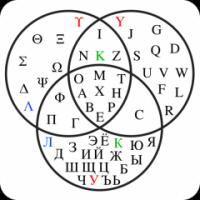Hozzászólások: 25
Nyelv: English
matrix (Profil megtekintése) 2013. július 6. 21:06:56
erinja:rajti expresses the idea of "may". May I help, versus "can" I help. It is asking permission in a polite way.“May I help?” → “Ĉu mi helpu?”; “Puis-je (vous) aider ?”
The volitive mood may be used in this specific case (permission in a polite way).
Refer to PMEG (26.3. Vola modo: U-finaĵo): “Ĉu ni iru al la dancejo? Demando pri volo. La efektiva senco de tia frazo tamen plej ofte estas ĝentila propono.”
“Vous permettez ?”, “Puis-je ?” → “Ĉu mi povu?”; “May I?”
The use of rajti in this specific case may be avoided in a brief and elegant way, unless really intended — like in arts, literature, etc.
robbkvasnak (Profil megtekintése) 2013. július 6. 21:35:40
In American English the expression 'ought to' is almost extinct though still comprehensible. The word 'should' is pretty much used. And we use 'gotta' in spoken language a lot. Also: "it is ______ [possessive form] duty" and "_______ [subject] ______ [verb to be] ________ [possessive] duty to". I am not so sure that there is always a different shade of meaning between all of these terms in the individual's idiolect - that depends on individual experience (past and present) and dialect. (I understand education and social class under the heading 'individual experience').
I am glad that I don't have to acquire English (any form of it) as a true second language. I got that past me when I was a five-year-old in Kindergarten. The teacher simply washed out my mouth every time I spoke German - or made me stand in the cloak room. I guess that pretty much explains my profound affinity for the English language (hahaha).
pdenisowski (Profil megtekintése) 2013. július 7. 0:08:33
matrix:Personally I would also say "Ĉu mi helpu" in this case.erinja:rajti expresses the idea of "may". May I help, versus "can" I help. It is asking permission in a polite way.“May I help?” → “Ĉu mi helpu?”; “Puis-je (vous) aider ?”
horsto (Profil megtekintése) 2013. július 7. 11:47:46
pdenisowski:I also agree.matrix:Personally I would also say "Ĉu mi helpu" in this case.erinja:rajti expresses the idea of "may". May I help, versus "can" I help. It is asking permission in a polite way.“May I help?” → “Ĉu mi helpu?”; “Puis-je (vous) aider ?”
"Ĉu mi rajtas helpi vin" means: do I have the right to help you and is really overkill, it sounds like a philosophical question.
erinja said, that rajti expresses the idea of "may", I think she means that the meaning can go into this direction. But real meaning is to have the right or to be allowed.
sudanglo (Profil megtekintése) 2013. július 7. 12:10:12
I teach English as a second language. These words are very confusing to the learners and we lose a lot of time on them: 'have to', 'must', 'should', 'ought to', 'duty', and 'obligation' (and one might add 'supposed to')However confusing the usage patterns of English may be to foreign learners, the basic idea is a fairly simple one, namely that one is expressing a view of the obligation, which may range from personal insistence to compulsion that arises from external circumstances, through various intermediate nuances as to how you see the obligation arising.
The simple choice in Esperanto between devas and devus seems in contrast to be somewhat limited. Finding some way of expressing in Esperanto these nuances of English is in any case required for translation purposes, though I would argue that a qualification of obligation is a pretty basic communicative need.




